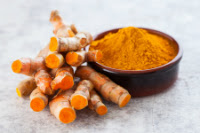 Considered a first-aid all-star, Calendula (Calendula officinalis) bears the nickname “mother of the skin.” It’s been used for health remedies and spiritual rituals dating back to ancient Egypt and early Christianity. Boasting antibacterial, antiviral, and anti-inflammatory properties, calendula is still used to help heal skin inflamed by chafing, blisters, bites, and burns, as well as in treatment for dermatitis, eczema, wounds, and diaper rash. Calendula is found in a variety of cosmetics, as well as medicinal lotions, creams, and ointments applied to the skin to help reduce pain and swelling and encourage new tissue growth.
Considered a first-aid all-star, Calendula (Calendula officinalis) bears the nickname “mother of the skin.” It’s been used for health remedies and spiritual rituals dating back to ancient Egypt and early Christianity. Boasting antibacterial, antiviral, and anti-inflammatory properties, calendula is still used to help heal skin inflamed by chafing, blisters, bites, and burns, as well as in treatment for dermatitis, eczema, wounds, and diaper rash. Calendula is found in a variety of cosmetics, as well as medicinal lotions, creams, and ointments applied to the skin to help reduce pain and swelling and encourage new tissue growth.
Medicinal Calendula has fiery red and yellow petals and is from the Marigold Asteraceae family, not to be confused with common garden marigold from the Tagetes group. In addition to topical applications, calendula flowers and leaves are used in capsules, oils, teas, and tinctures. A Naturopathic Doctor can help you determine which form of calendula is best to treat specific health concerns.
There are a few precautions for using calendula: Women who are pregnant or breastfeeding may use calendula topically, but should not take it by mouth. Calendula may interact with other medications, resulting in drowsiness. Since it’s part of the ragweed family, people sensitive to or allergic to marigold, daisy, or chrysanthemums should not use calendula products unless under a doctor’s care. Be sure to consult with a Naturopathic Doctor if any of the above situations apply to you.
References
Contact our office for more information
Journey of Health Medical Clinic
619-772-1164



 People living with Rheumatoid Arthritis (RA) compare the pain and inflammation to a fire raging out of control. RA is a chronic, systemic autoimmune disease causing swelling, stiffness, and pain in the joints. It can result in joint deformity and damage to other organs, including the nerves, heart, and lungs.
People living with Rheumatoid Arthritis (RA) compare the pain and inflammation to a fire raging out of control. RA is a chronic, systemic autoimmune disease causing swelling, stiffness, and pain in the joints. It can result in joint deformity and damage to other organs, including the nerves, heart, and lungs.
 How did gluten, a naturally-occurring protein found in wheat, barley and rye – sources of nutrition for people over thousands of years, become so unhealthy?
How did gluten, a naturally-occurring protein found in wheat, barley and rye – sources of nutrition for people over thousands of years, become so unhealthy?
 With its sweet, sour, salty, pungent, and bitter flavor profile, it’s no surprise the Chinese call Schisandra chinensis “the five flavored fruit,” or wu wei zi. Regarded as the most important herb in Traditional Chinese Medicine, the schisandra berry might more aptly be called the “fruit of life.”
With its sweet, sour, salty, pungent, and bitter flavor profile, it’s no surprise the Chinese call Schisandra chinensis “the five flavored fruit,” or wu wei zi. Regarded as the most important herb in Traditional Chinese Medicine, the schisandra berry might more aptly be called the “fruit of life.” There’s much more to that sweet, fluffy treat we enjoy melted in a s’more or sprinkled atop hot cocoa. Marshmallow (Althaea officinalis) is an ancient herb whose Greek name, Althainean, means “to heal.” Ancient Greek and Egyptian healers used Marshmallow flowers and leaves in salads to support healthy digestion. A secretion, known as mucilage, from its roots and stems, was used to soften the skin, treat sore throats, and ease congestion. Naturopathic doctors use Marshmallow Root (aka “mallow”) for these purposes and in treatment preparations for:
There’s much more to that sweet, fluffy treat we enjoy melted in a s’more or sprinkled atop hot cocoa. Marshmallow (Althaea officinalis) is an ancient herb whose Greek name, Althainean, means “to heal.” Ancient Greek and Egyptian healers used Marshmallow flowers and leaves in salads to support healthy digestion. A secretion, known as mucilage, from its roots and stems, was used to soften the skin, treat sore throats, and ease congestion. Naturopathic doctors use Marshmallow Root (aka “mallow”) for these purposes and in treatment preparations for:

